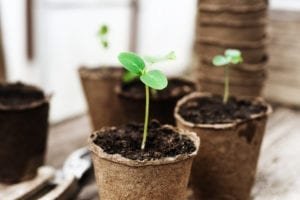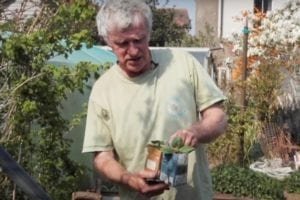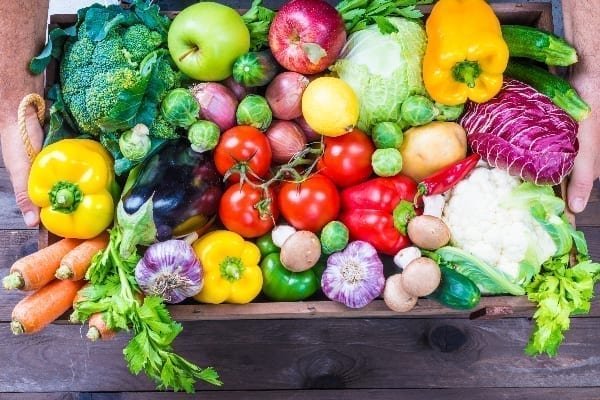Where to buy plants
Where you buy your plants from is important. It is easy to get tempted by discounts and attractive offers at major retailers, but these plants are not always the best option.
A plant that has been stressed – usually by underwatering, but sometimes by extremes of temperature – may not thrive once planted.
If you can, buy your plants from reputable plant raisers. If you don’t have one locally, look online – there are loads of great nurseries selling organic plants and unusual varieties. Many plants travel fine provided they are unpacked quickly on arrival. This is also a great way to support independent businesses.
For imported plants, check that the plant and nursery have gone through the right health checks – this is particularly important for trees.
Keeping your plants healthy
I don’t always manage to plant my new purchases promptly; if you are the same, make sure you look after them – and especially keep them watered – until you can get them in the ground.
If you are not quite ready to pop them into their final position, then you can pot them on in a slightly bigger pot to keep them happy temporarily.
If you are buying seeds then look out for open-pollinated varieties; there are suppliers in the UK and beyond, many of which are also organically certified. Tamar Organic, Biodynamic Seed Cooperative and Real Seeds are three great options.
If you want to take it to the next level, you can start saving your own seed for a locally adapted strain of flower or vegetable.
And of course, as always, feeding the soil to keep it healthy is key – compost, or well-composted manure or woodchip, are great ways to build your soil’s organic matter and health.
Investing in horticulture
The final piece in the jigsaw is the protection of plants, yet for too long there has been underinvestment
in horticulture.
Despite its impressive economic record – bringing in 25% of the revenue from land-based industries despite only taking up 4% of the land – horticulture still can’t shake off its image of being for people who have failed at school.
Though I have worked with many talented growers who found their niche after being failed by our education system, horticulture also attracts ‘second careerers’ like myself.
Without proper investment in attracting and training the best individuals, it will not be possible to achieve ‘plant health’.
Despite the current government’s apparent lack of interest in farming, we need to grow more of our own food and we need lots of new growers to make this happen.
Let’s hope the Year of Plant Health can help to change the conversation.
 Play Video about This Rock Might Just Save The World
Play Video about This Rock Might Just Save The World Play Video about Play 2 hours of rock
Play Video about Play 2 hours of rock Play Video about Play 2 hours of brook
Play Video about Play 2 hours of brook Play Video about Play 2 hours of sheep
Play Video about Play 2 hours of sheep















































